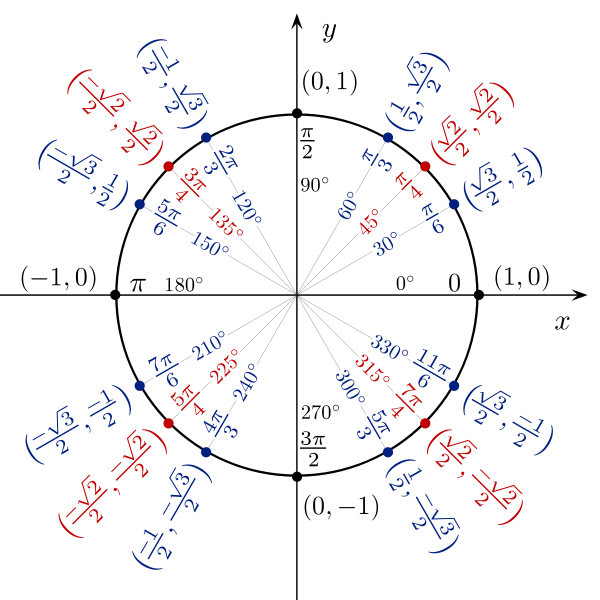Question
Question: How do you calculate the arctan(\(0\))?...
How do you calculate the arctan(0)?
Solution
To solve this problem we should be aware of the fact that arctan(0) is at which at which tan(x)=0 and x belongs to the range, −2π<x<2π(or −90<x<90 if you use degrees).
Also, tan(x)=cosxsinx.
Complete step by step solution:
We need to solve arctan(0)
We know that, arctan(0) is at which at which tan(x)=0.
Tangent of theta is defined as the ratio of sine of theta to cosine of theta, i.e., tan(x)=cosxsinx
So, we get that, tan(x)=0only when, sinx=0
We will use the below unit circle to generalize sinx=0.

We get that, sinx=0in the given range of x, −2π<x<2π
x=0+n.2.πor else,
x=π+2.π.n
In the given case, x=n.π, where n is an integer.
Only x = 0 satisfies, −2π<x<2π.
We get, sinx=0
tan(x)=0and,
arctan(0) =0
Note:
Arctan(0) is at which tan(x)=0. Tangent of theta is defined as the ratio of sine of theta to cosine of theta, i.e., tan(x)=cosxsinx. Thus, tan(x)=0 only when, sinx=0.
